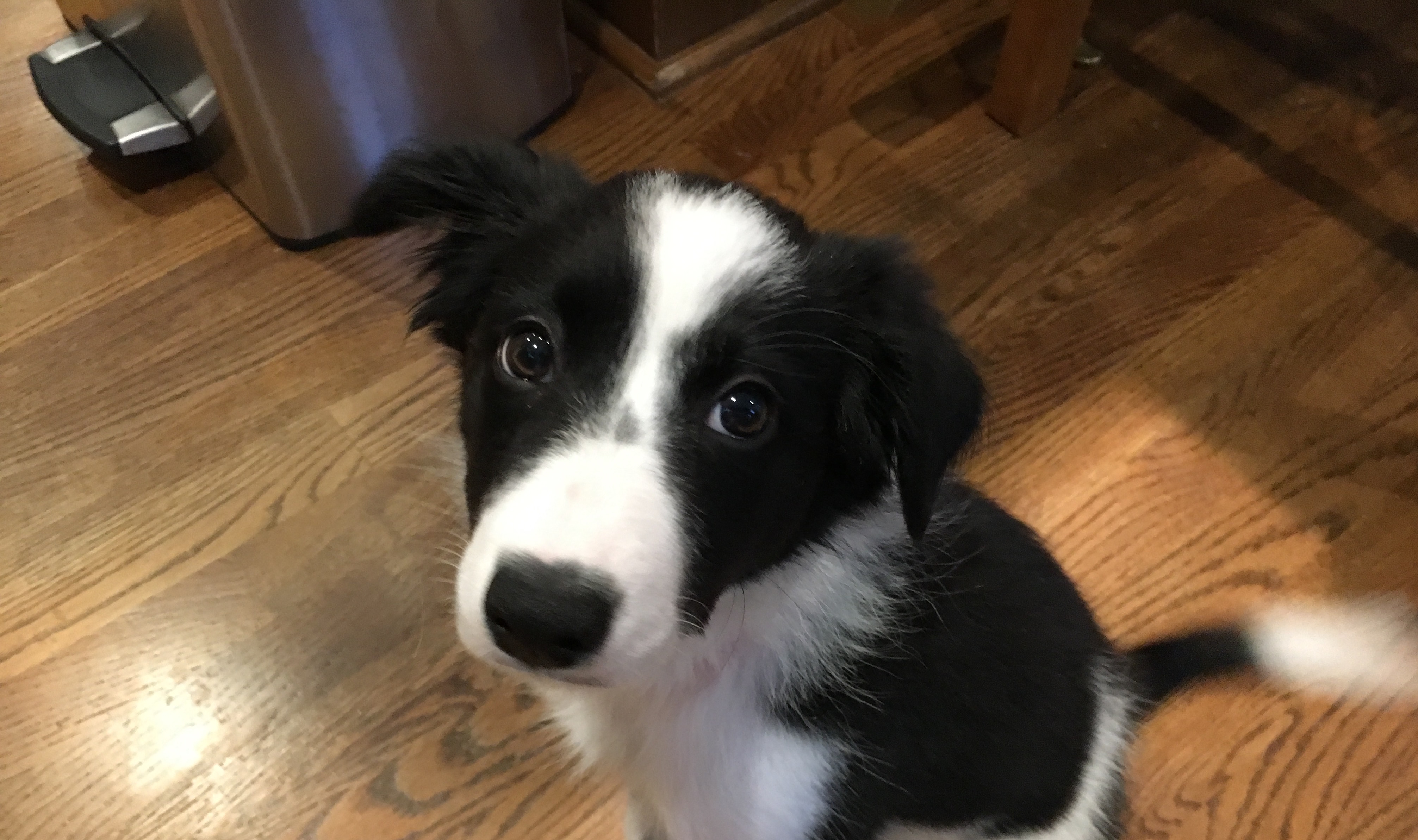Stopping your Border Collie puppy from biting requires patience and consistency. Puppies bite because they explore the world with their mouths.
Border Collie puppies are intelligent and energetic. They often use biting as a way to play and interact. While this behavior is normal, it’s important to curb it early. Unchecked biting can lead to problems as your puppy grows. Teaching your Border Collie not to bite involves understanding why they do it.
It also means providing proper training and guidance. In this blog, we will explore effective methods to stop your puppy from biting. These methods will help you enjoy a well-behaved and happy companion. Let’s dive into practical tips and solutions to manage this common puppy behavior.
Recognizing Puppy Biting Behavior
Recognizing and addressing biting behavior in your Border Collie puppy is crucial. Encourage gentle play and provide chew toys to redirect their energy. Socialization with other dogs can also help reduce biting tendencies.
Recognizing puppy biting behavior is the first step to stop your Border Collie puppy from biting. Puppies explore the world with their mouths. Understanding why they bite helps manage this behavior effectively.Common Reasons
Puppies bite during playtime. They also bite when teething. It soothes their sore gums. Sometimes, they bite to get attention. Biting can also mean they are overstimulated or tired.Types Of Bites
There are different types of bites. Playful nips are gentle and common. Teething bites are persistent and more intense. Fearful bites happen when a puppy feels threatened. Aggressive bites are rare but serious. Recognizing these helps in addressing the behavior properly.Early Training Techniques
Training your Border Collie puppy early is crucial to prevent biting. They are known for their energy and intelligence. Start training when they are young to establish good habits. Here are some effective early training techniques to stop your puppy from biting.
Positive Reinforcement
Positive reinforcement is a powerful tool in training your puppy. Reward your Border Collie puppy for good behavior with treats or praise. This encourages them to repeat the behavior.
Here are some steps to follow:
- Offer a treat when your puppy stops biting.
- Praise them with a cheerful voice.
- Use a consistent command like “Good” or “Yes” when they behave well.
Consistency is key. Always reward your puppy immediately to reinforce the behavior.
Redirecting Attention
Redirecting your puppy’s attention can help stop biting. Puppies often bite when they are bored or teething. Provide them with appropriate toys to chew on.
Follow these steps to redirect their attention:
- Provide chew toys that are safe and durable.
- Distract your puppy with a toy when they start biting.
- Engage in interactive play to keep them occupied.
Here is a simple table of suitable toys for your Border Collie puppy:
| Toy Type | Description |
|---|---|
| Rubber Chew Toys | Durable and safe for teething puppies. |
| Interactive Toys | Stimulates your puppy mentally and physically. |
| Rope Toys | Great for tug-of-war and chewing. |
Engaging your puppy in regular playtime reduces their tendency to bite. Remember, a tired puppy is a happy puppy.
Socialization Strategies
Socialization is essential for your Border Collie puppy’s development. It helps them learn how to behave around others. Proper socialization can reduce biting and other unwanted behaviors. Let’s explore some effective socialization strategies.
Introducing To Other Dogs
Introduce your puppy to other dogs early. This helps them learn social cues.
- Start with calm, well-behaved dogs.
- Meet in neutral, safe environments like a quiet park.
- Use a leash to control interactions.
- Watch for positive signs like wagging tails and play bows.
- Separate if either dog shows aggression or fear.
Short, positive encounters build confidence. Repeat these sessions often.
Meeting New People
Expose your puppy to different people. This helps them become comfortable with various humans.
- Invite friends and family to your home.
- Visit pet-friendly stores and parks.
- Encourage people to offer treats and gentle petting.
- Teach your puppy to sit when meeting new people.
- Praise and reward calm behavior.
Gradually increase the number of people your puppy meets. This will help them adapt to different social situations.

Credit: www.youtube.com
Using Chew Toys
Using chew toys can be an effective way to stop your Border Collie puppy from biting. Puppies often bite out of boredom, teething pain, or the need to explore their environment. Chew toys offer a safe and appropriate outlet for these behaviors. In this section, we’ll cover how to select safe toys and encourage your puppy to use them.
Selecting Safe Toys
Choose toys made from non-toxic materials. Safety is the top priority. Look for durable toys that can withstand sharp puppy teeth. Avoid toys with small parts. These can be a choking hazard. Opt for toys designed specifically for teething puppies. These are often softer and more flexible.
Encouraging Toy Use
Introduce the toy during playtime. Make it fun and engaging. Praise your puppy when they chew on the toy. This reinforces good behavior. Rotate different toys to keep things interesting. This prevents boredom. Use toys that can be filled with treats. This adds an extra incentive. Always supervise your puppy during play. Ensure they are using the toy safely.
Setting Boundaries
Training a Border Collie puppy can be challenging. They are smart and full of energy. One common issue is biting. Setting boundaries helps stop this behavior. This involves clear rules and consistent responses.
Establishing Rules
Your puppy needs to understand what is acceptable. Make sure everyone in the household follows the same rules. Decide what behaviors are not allowed. Examples include no biting during play or when greeting people.
Communicate these rules clearly to your puppy. Use firm commands like “No bite” each time they try to bite. Over time, your puppy will learn what is expected. Praise them when they follow the rules. This positive reinforcement helps them understand good behavior.
Consistent Responses
Consistency is key in training. Every time your puppy bites, respond the same way. Use the same command and tone. Do not laugh or play when they bite, as this sends mixed signals.
If your puppy bites, stop playing immediately. Walk away or ignore them for a few minutes. This teaches that biting ends fun activities. Consistent responses help your puppy learn faster. They will understand that biting is not acceptable.
Exercise And Mental Stimulation
Exercise and mental stimulation are essential for a Border Collie puppy. These active dogs need both physical and mental challenges to stay happy. Without enough exercise and mental tasks, they may develop bad habits like biting. Engaging your puppy in proper activities can curb this behavior.
Daily Physical Activity
Border Collie puppies need at least an hour of exercise daily. Walks, runs, and playtime in the yard are great options. Regular physical activity helps burn off excess energy. A tired puppy is less likely to bite out of boredom or frustration. Consistent exercise routines help create structure for your puppy.
Interactive Games
Interactive games keep your puppy’s mind engaged. Try games like fetch, tug-of-war, or hide and seek. These games challenge both their body and mind. Puzzle toys are another excellent option. They stimulate your puppy’s brain and keep them occupied. Rotating toys and games keeps things fresh and exciting.
Training sessions also serve as mental stimulation. Teaching new commands or tricks keeps their mind sharp. Short, fun training sessions can reduce biting behavior. Positive reinforcement during these sessions builds trust and understanding.
Professional Help
If your Border Collie puppy keeps biting, professional help might be needed. Sometimes, training at home is not enough. An expert can provide specialized advice. They can address specific issues with your puppy. Let’s look into when to consult a trainer and available behavioral therapy options.
When To Consult A Trainer
Consult a trainer if your puppy’s biting worsens. Also, if the puppy bites without stopping, seek help. A trainer can identify hidden causes of biting. Look for these signs:
- Excessive aggression during play.
- Biting that breaks the skin.
- Growling along with biting.
- Inability to calm down after biting.
These behaviors indicate professional help is necessary. A trainer uses specific techniques to address biting.
Behavioral Therapy Options
Behavioral therapy can help curb your puppy’s biting. Different methods are available:
| Method | Description |
|---|---|
| Positive Reinforcement | Rewards good behavior with treats and praise. |
| Redirecting Attention | Shifts focus from biting to toys or commands. |
| Socialization Classes | Teaches interaction with other dogs and people. |
Positive reinforcement involves rewarding good behavior. Your puppy learns biting is not acceptable. Redirecting attention helps distract the puppy from biting. Socialization classes teach proper interaction. These methods can reduce biting effectively.
A professional can tailor these methods to your puppy’s needs. They offer guidance and support throughout the process.

Credit: www.doggoneproblems.com
Monitoring Progress
Monitoring your Border Collie puppy’s progress in stopping biting is crucial. It helps you see what methods are working. It also lets you adjust your techniques as needed. Being consistent and patient is key to success.
Tracking Improvements
It’s important to track your puppy’s progress. Create a simple log to note each incident. Record the date, time, and circumstances. This helps identify patterns in your puppy’s behavior. You can use a table for better clarity.
| Date | Time | Incident Details |
|---|---|---|
| 01/01/2023 | 10:00 AM | Bit while playing fetch |
| 02/01/2023 | 3:00 PM | Bit a guest |
By keeping this log, you can see if the incidents are decreasing. This helps you know if your methods are working. It also keeps you motivated as you see progress.
Adjusting Techniques
If you notice no improvement, it might be time to adjust your techniques. Not all puppies respond the same way. Try different methods to find what works best for your Border Collie.
Here are some techniques to consider:
- Redirecting to a toy
- Using a firm “No” command
- Time-outs
Evaluate which methods show the most improvement. If one method does not work, try another. Be patient and consistent with your approach. Adjust your techniques based on your puppy’s response.

Credit: www.lovelybordercollie.com
Frequently Asked Questions
How Can I Stop My Border Collie Puppy From Biting?
To stop your Border Collie puppy from biting, provide chew toys, consistent training, and positive reinforcement. Redirect their biting to appropriate objects and praise them when they do well. Consistency is key.
Why Does My Border Collie Puppy Bite So Much?
Border Collie puppies bite due to teething, playfulness, or exploring their environment. It’s a natural behavior. Proper training and providing appropriate chew toys can help manage this behavior.
Are Border Collie Puppies Aggressive Biters?
No, Border Collie puppies are not naturally aggressive biters. They bite due to teething, play, or curiosity. Proper training and socialization can help reduce biting behavior.
What Toys Are Best For A Biting Border Collie Puppy?
Chew toys, interactive toys, and puzzle toys are great for biting Border Collie puppies. They keep them engaged and help with teething pain. Always supervise toy play to ensure safety.
Conclusion
Stopping your Border Collie puppy from biting takes patience and consistency. Practice positive reinforcement. Always reward good behavior. Distract with toys when biting starts. Consistent training builds trust and understanding. Socialize your puppy early. This helps them learn proper behavior.
Provide plenty of exercise. A tired puppy is less likely to bite. Seek professional help if needed. Stay patient and committed. Your bond with your puppy will grow stronger. Happy training!
